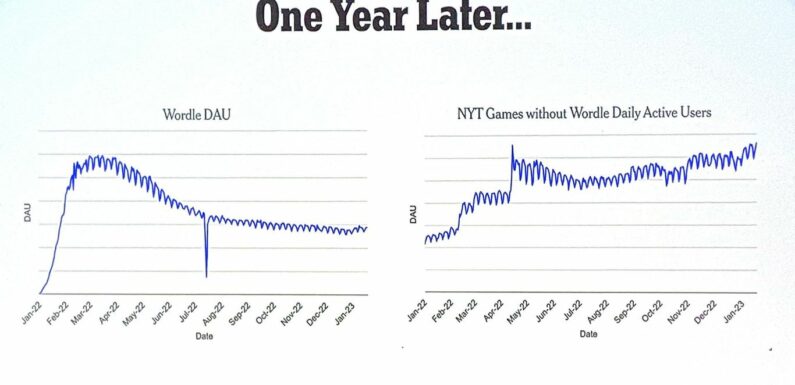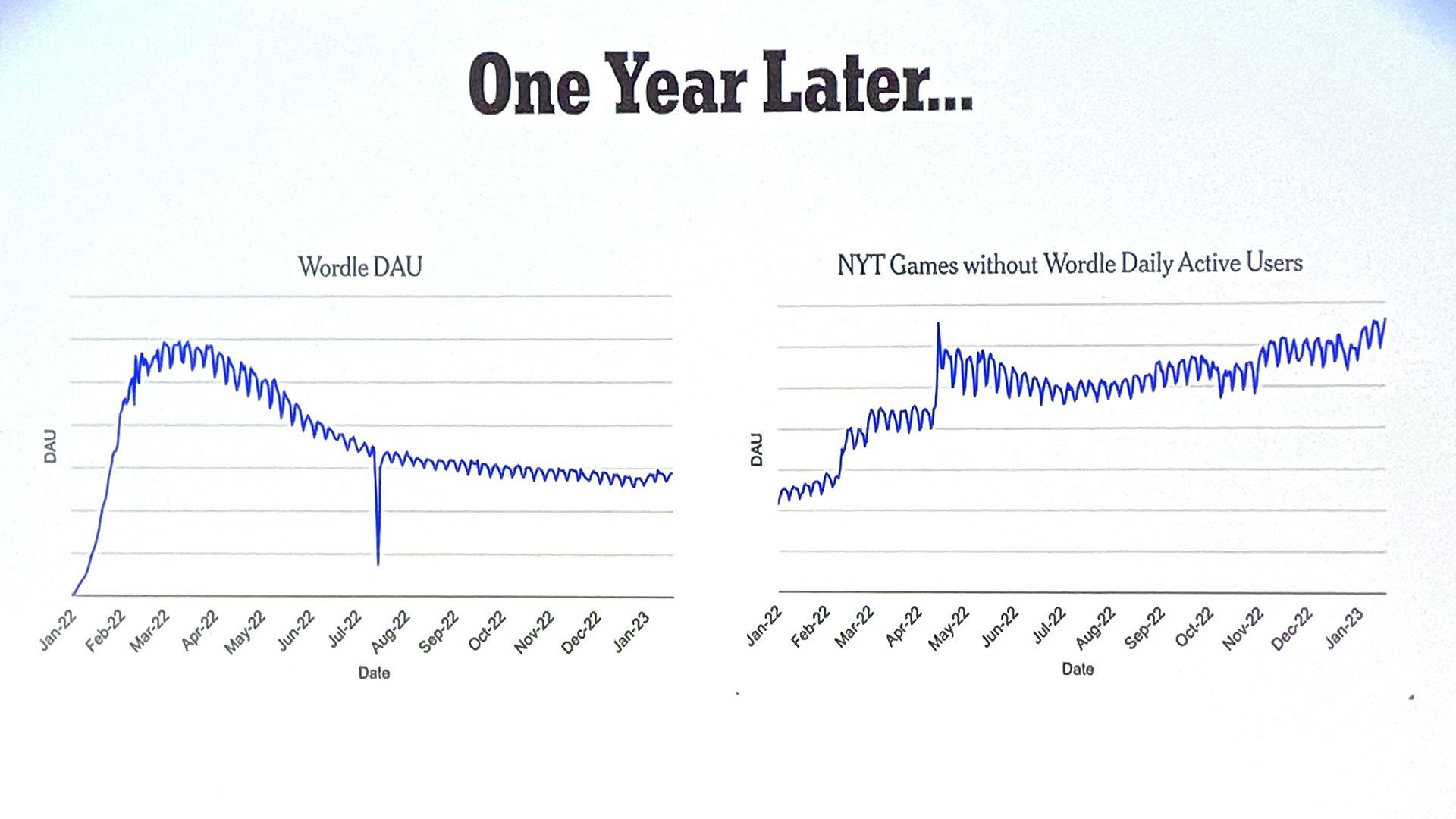
The New York Times' data on Wordle usage (including a brief July outage). Photo: Axios
Wordle usage peaked in March of last year but has remained strong since the game’s purchase by The New York Times last January.
Why it matters: Despite some players' fears that it would, the NYT hasn’t ruined Wordle, according to player stats. Far from it.
- Making that case today at the Game Developers Conference in San Francisco was Zoe Bell, a 14-year industry veteran and executive producer at NY Times Games.
- The paper’s strategy, she said, was to “preserve Wordle as an internet treasure” and follow a simple ethos of “do no harm,” with admittedly mixed results.
Details: Bell described the Times’ management of Wordle throughout 2022 as a careful process focused on keeping changes to the game minimal, rolling them out slowly and being transparent with players.
- The company didn’t rush to monetize Wordle, spent months preparing to change its codebase for better stat-tracking, months to bring it into the Times’ mobile app, all while keeping the user experience as similar to its indie incarnation as possible, Bell said.
- The game’s post-acquisition growth was actually a surprise, she said: “We thought people would think that Wordle had peaked and how long can exponential growth go on?”
- One positive not usually cited by big game publishers: The addition of an editor to Wordle in late 2022 put a human face to the game. Having that human element is "so important for our brand and the delight of our players," she said, joking that now frustrated Wordle players had someone to blame when they struggled.
Yes, but there was occasional friction with Wordle's users.
- There were easily tolerated grumbles over the game’s change in font and the creation of its icon for the Times hub.
- Some players were also upset when the paper removed words from the word list because they were deemed too obscure (agora, fibre) or in violation of the Times’ sensitivity guidelines (slave, wench, lynch). That decision was partially reversed due to player feedback, Bell said, letting users input some problematic words. The thinking: doing so wouldn’t harm other players.
- The Times’ Wordle team also faced complaints mid-year that the game’s difficulty had been increased, which Bell denies was the case (that said, a September puzzle solution PARER was the year’s top snapper of players' streaks, quadrupling the average daily number of broken streaks).
- The company also got some grumbles over offering a themed solution — FEAST — on Thanksgiving. During a post-presentation Q&A, Bell told an Ars Technica reporter that the Times had no plans for more themed Wordle solutions.
Between the lines: Some 35% of the users who subscribe to the Times’ gaming subscription service now cite Wordle as the reason they subscribed, Bell says.
- That’s despite it being a free game.
Sign up for the Axios Gaming newsletter here.
Source: Read Full Article
